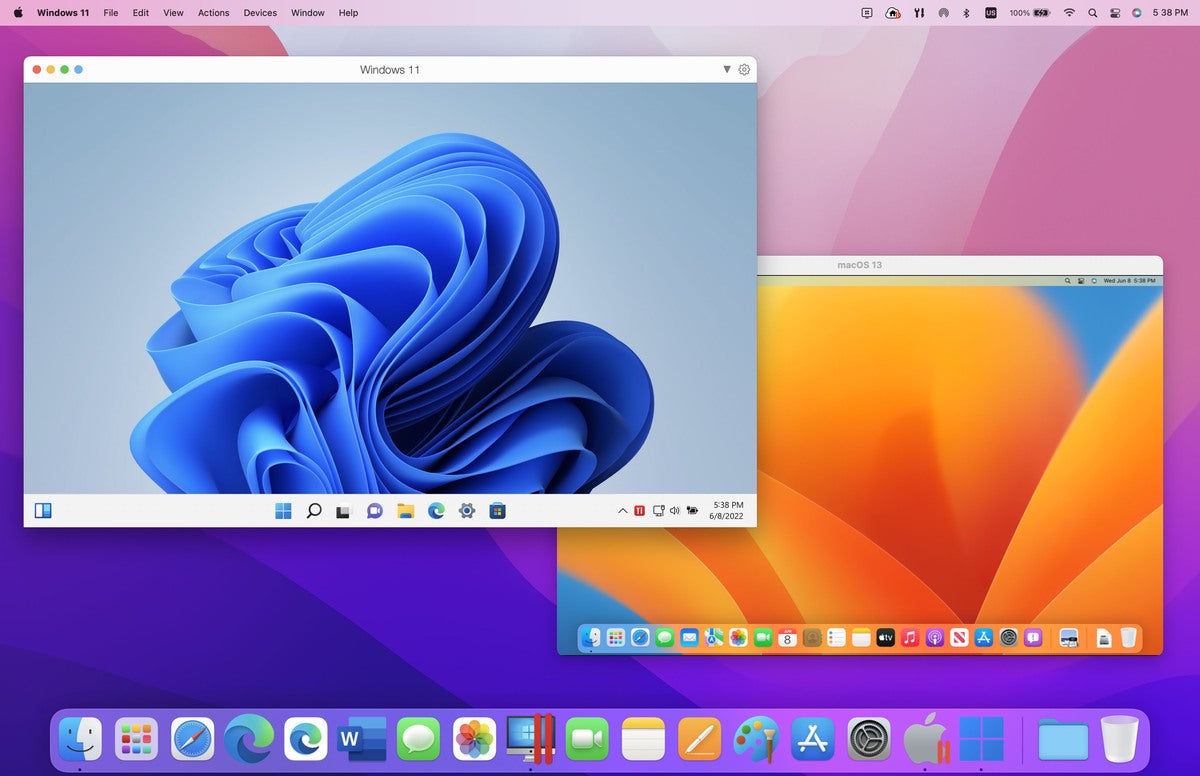The best way to run Windows on a Mac is being updated with new features and macoS Sonoma compatibility. Among the new features in the latest Parallels Desktop release are TouchID support for Windows, enhanced multitouch, and better support for virtual machines in the clouds.
If you’ve used Parallels before, you’ll notice its spruced-up appearance. Dig a little deeper and there are numerous tweaks that seem particularly focused on professional users, including enhancements with a direct impact on mixed-platform enterprises.
Plenty of improvements for work
Notably, and certainly a big nod in recognition of the success Apple is having selling Apple Silicon-powered MacBook Air and MacBook Pro devices into business, it includes much better Trackpad support. You can also now use all the multitouch gestures you’re used to using on a Mac while working in a Windows app.
Enterprise and personal users will also benefit from the much improved Touch ID integration, which means users with a secure Windows login and password can use Touch ID Mac to access Windows virtual machines. Is that the most secure and fastest way to access Windows yet? It may well be, given that you can also enroll Windows Virtual Machines into Windows Intune, which should please tech support in hybrid environments.
“Previously, to ensure that virtual Windows devices used by end-users in an organization can be enrolled in Microsoft Intune, an IT admin could use only the mass deployment scenario, which is not convenient for some types of organizations,” the company said.
It is now possible to enroll Windows 11 VMs in Intune via the Parallels My Account web app; the Windows image is simply shared via cloud storage. This is only available in the Parallels Desktop for Mac Business Edition. The latter also provides a range of tools for mass deployment of Window VMs, including unified volume licensing.
Remote access also improved
Cleaving to the business-related theme, Parallels Pro users gain a powerful remote access feature that lets them access a macOS Sonoma virtual machine through port forwarding. That’s incredibly useful to developers working with Amazon or MacStadium-hosted Mac cloud instances. Pro users also get more from their existing Windows-only apps, such as ArcGIS CityEngine or VariCAD, thanks to OpenGL4.1 support.
Finally, it is also now possible to print directly from within a Windows app running in the virtual machine on the Mac. That feature relies on Shared Printing via Internet Printing Protocol (IPP).
The company introduced support for Windows on ARM chips in Parallels Desktop 17, following that up with a subsequent version with a Windows installation built in. When used in Coherence mode, you no longer need to think about which OS is running the software you use. It works quickly and well.
What Parallels said
“For over 17 years, Parallels Desktop for Mac has been an essential tool for millions of users worldwide, enabling them to run Windows applications and carry out testing and development with Windows, Linux, and macOS virtual machines,” said Aleksandr Sursiakov, senior director of product management for Parallels Desktop at Alludo.
“With the latest release, our talented engineering team has once again delivered impressive improvements for all user groups based on their valuable feedback. Our aim is to ensure that users experience peace of mind when using our software, knowing that it incorporates the latest technologies and reflects the highest industry standards.”
What it costs and what it requires
Parallels Desktop costs $99 year for the standard edition, $119 for the Pro version, and $149.99 per year for the Business Edition. Parallels Desktop subscriptions include complementary concurrent subscriptions to Parallels Access and Parallels Toolbox for Mac and Windows.
The software runs on any Apple Silicon Macs and some earlier Intel machines. You need 4GB RAM, plenty of space for the guest OS and macOS 10.14.6 or later.
You can also run Linux VMs using Parallels. This has been improved with the addition of x86 emulation, which exploits the Rosetta 2 tech inside Apple Silicon
Please follow me on Twitter, or join me in the AppleHolic’s bar & grill and Apple Discussions groups on MeWe.
Copyright © 2023 IDG Communications, Inc.










